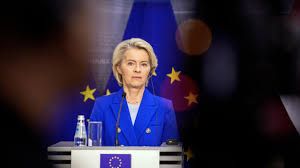
Italy is weighing steps to conceal the flight paths of government aircraft after the plane carrying European Commission president Ursula von der Leyen experienced a loss of satellite navigation that EU and Bulgarian officials say was caused by GPS jamming. The move, discussed inside the defence ministry, would limit public information on state flights and seek to block specialised tracking sites from showing official aircraft routes.
The incident occurred on Sunday as von der Leyen’s charter approached Plovdiv, Bulgaria. An EU spokesperson said the aircraft’s GPS system was jammed and that Bulgarian authorities suspect “blatant interference by Russia”; air traffic controllers used ground-based navigation to ensure a safe landing.
Italian officials are exploring options that include classifying state flights and reducing the detail published on government websites, measures that would test existing transparency rules requiring publication of ministers’ movements. Defence minister Guido Crosetto had previously raised the prospect of tighter controls after a recent rise in satellite-navigation interference in European airspace.
The episode has fed a wider debate in the EU about how to protect the movements of senior officials. NATO and other Western bodies say GPS jamming and “spoofing”, techniques that overload or falsify satellite navigation signals, have become more frequent since Russia’s 2022 invasion of Ukraine, posing new risks to civil aviation and diplomatic travel. Western officials and defence analysts have catalogued dozens of such incidents across Europe.
The Kremlin has denied responsibility. When asked about the reports, Kremlin spokesman Dmitry Peskov told the Financial Times that the information was incorrect.
The von der Leyen incident has prompted calls for practical safeguards, from better backup navigation infrastructure at airports to tighter limits on the public publication of state aircraft telemetry, even as governments weigh the legal and diplomatic implications of restricting flight-tracking data. Officials say any changes would need to balance national security with transparency and international flight-clearance protocols.



